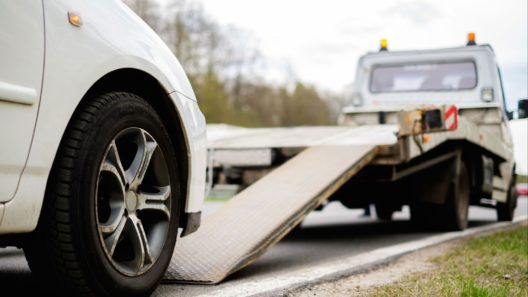What should my towing capacity be?
Towing is a way to get your vehicle to move more weight than it can bear. Towing capacity refers to the maximum weight your vehicle can safely pull. While this may sound simple, there are many factors that go into determining your vehicle's towing capacity. This guide will help you understand the various parts of towing capacity.
Although this guide will not replace a course in towing with your vehicle or trailer, it can help you get started. To determine your towing capacity, visit your local weighbridge.
What is the importance of measuring towing capacity?
Towing capacity refers to the maximum weight your car can haul legally and safely. Too much weight can cause your trailer to swing and pull your car out of control. This can cause problems with stopping and quickly wearing your brakes. It is illegal to tow more than your vehicle's towing capacity, your towbar, or tow ball.
Towing capacity key measurements
To measure your vehicle's towing capacity contact the car towing professionals, you need to take and compare a number of measurements. So you can understand the towing capacity of your vehicle, we'll provide some key measurements.Let's begin with the measurements that you will need to determine if you are able to drive safely.
- Kerb Weight: This is the total vehicle weight with the driver and any liquids like oil or fuel.
- Towball weight This is the weight of your trailer attached to your vehicle's Powerball. This can be checked by using a scale to measure the weight.
- Payload The weight of any additional items you add to your vehicle. This includes gear and all passengers. This includes the trailer attached to your vehicle's tow ball.
- Tare Mass: Your caravan or trailer's weight, including any accessories but not gear or cargo.
- Trailer payload The weight of any additional cargo or gear you add to your trailer.
- Gross trailer mass: The weight of your caravan/trailer, when it is attached to your vehicle.
How can I determine the vehicle's towing capacity?
To safely tow, you need to consider a variety of measurements. Now that we have the input measurements, let us look at the towing limits. These limits will be on your vehicle's door sticker or in the owner’s manual.
- Gross Vehicle Weight Rating This is the maximum weight your vehicle can carry. This amount cannot exceed your curb weight plus payload.
- Aggregate weight Rating: The maximum allowed weight for your caravan or trailer. This includes all cargo and gear. This amount cannot exceed your tare weight + trailer payload.
- Gross combined weight rating: This is the maximum vehicle and trailer can safely carry when fully loaded. This is the maximum curb weight plus payload + tare Mass + trailer payload.
- Towball weight: For safe and stable towing, this should be approximately 10% of the total load. This can be different for every vehicle so make sure to check your owner's manual.
Your towing capacity is simply your vehicle's gross combined weight rating (your vehicle’s curb weight + your payload). Your vehicle's towing capacity is the vehicle's gross combined weight rating (your vehicle curb rating). It does not include any passengers, gear, or cargo. This is why it is important that you properly calculate the calculation.
Braked vs. Unbraked Towing Capacity
Braked towing capacity is the most common way to specify your vehicle's towing capacity. If your trailer has its own brakes, this is the maximum your vehicle can tow. If your trailer does not have brakes, your vehicle's unbraked towing capability is the maximum you can tow. This is less than braked towing capacity and is restricted to a maximum weight of 750kg, regardless of the vehicle. Check out more: Cheap Towing techniques

